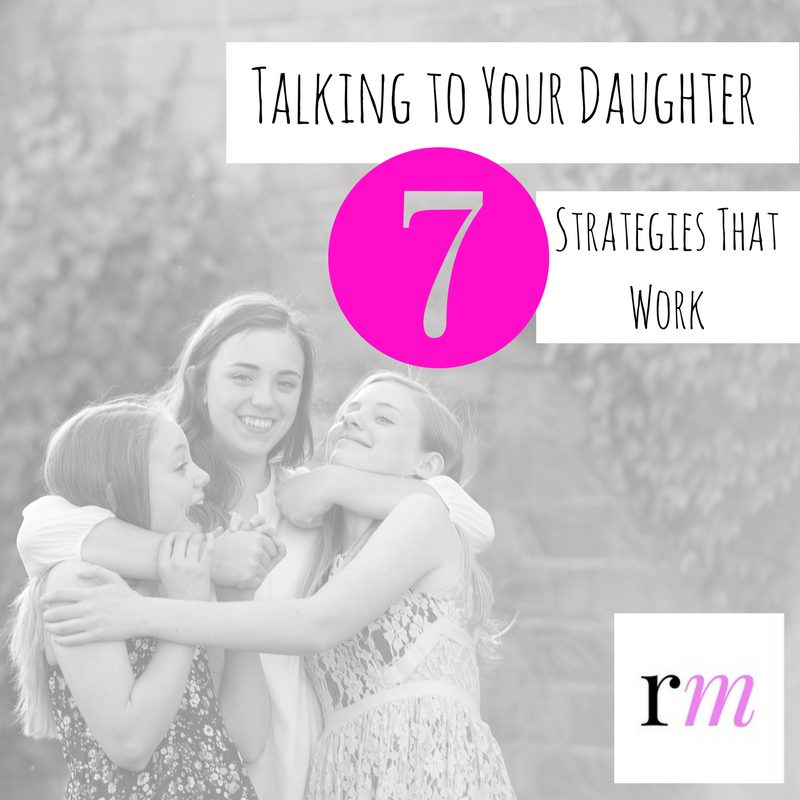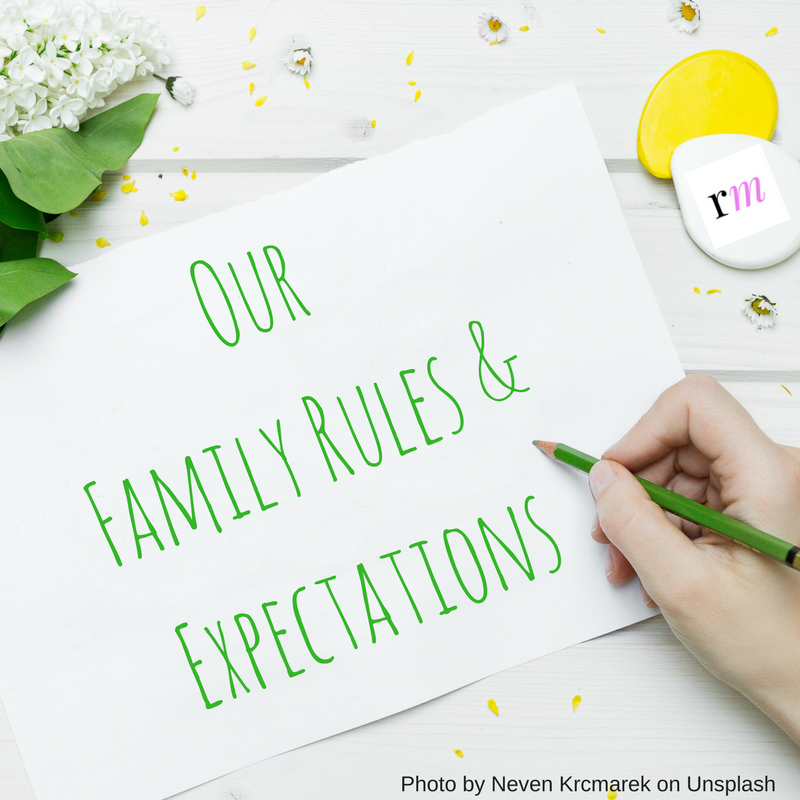Talking to teens is hard. If you have a teen daughter, you’ll find great practical advice in this post on how to get her to open up and what to say to her when she finally does.
I love babies.
I was really good at being a mom when the girls were babies. I was notoriously good at getting them to stop crying. I loved everything that came with having babies; the diaper bag, bottles, pacifiers, blankets, sleepers with footies, tiny socks, (all of their little pink laundry, really), the stroller, cutting their little baby fingernails…
Maybe I’m just feeling nostalgic since my girls are teenagers (my youngest is 12, however, her attitude qualifies her as a teenager) and it feels so long ago that I woke up to a crying baby. Or maybe it’s because Allison just had the most adorable baby boy. I may not have loved everything, but it seems like parenting was much simpler then.
The teenage phase is so much different from the baby phase. Cute things have been replaced with irritating and complicated things. Messy rooms, back-talk, eyerolls, stomping off, slammed doors, homework, late nights, mopeds and driver’s licenses… But I think I am figuring this phase out too.
In fact, it might be my new parenting sweet spot.
One of my goals for myself as the mother of teenage girls has been to keep them talking to me. I never wanted a period in our relationship where they hated me or refused to talk to me. Teenagers can choose to go to their rooms after school and not talk their parents. They can hide their relationships and lie about where they go. I didn’t want that to be my kids. Kids grow up so quickly (cliché, I know, but absolutely true). I want to be a part of all of it, even these teen years that seem to be the most difficult.
I don’t want them to talk to me because I am nosy or “helicoptering” (as my husband would say) or because I want them to be my friends or be interested in my life. I want them to talk to me because they are smart and fun, and I want to see what kind of women they are becoming. To know what they are thinking about and struggling with, what kind of choices they are making and how they relate to other people and the world.
It is difficult to talk to teenagers, especially girls. They are mysterious and moody. I didn’t want to talk to my parents when I was their age, so how can I expect mine to want to talk to me? How do you even start a conversation when they don’t offer you an opening? How do you know what to say when they tell you something horrifying?
I think I may have (sort of) cracked the code.
I am no expert. I make parenting mistakes regularly. And maybe tomorrow they will stomp off and slam their doors behind them and ignore me for days. But for now, things are working for us. I asked the girls to help me create the list of strategies below for parents like you who may struggle to relate to their mysterious teenage girls- so that you can be a part of this phase too.
-
Don’t be “judgy”.
This is a word my kids are always saying (I’m not sure it’s really a word?). What they mean is that they don’t want to feel like you are disgusted, annoyed, angry, or are going to lecture them after they tell you something. They are very perceptive in sensing judgment, especially from you. I have been called “judgy” from my kids because of the look on my face when they told me something.
If your daughter tells you that she likes a boy at school and your reaction is a look of shock or an eye roll, she likely won’t tell you much more. Find your poker face and try to listen before you react.
-
Be on their side.
Teenage girls (just like women) don’t always tell you something so that you can figure out the problem and offer them a solution. Sometimes they just want you to listen. They want to know that you understand where they are coming from. I am constantly tempted to tell the girls what I would do in a situation or what I would have said, but that’s not what they want to hear. Having survived middle and high school and having decades pass since our own experiences make it easy for us to say that “this will pass” or “it won’t matter in 10 years” when something awful happens to them. But their whole life is friends and school and they need to feel like someone cares about all of those little, terrible things that happen to them. They want you to listen to what happened and say “that stinks” or give them a hug.
One way I try to be on their side is to pray for them. For their relationships, for good judgment, for their safety, for their friends, you name it- I pray for it.
-
Let them have friends over.
I say yes to this request almost every time someone asks. And that means most days of the week, we have extra kids to feed for supper and most weekends we have sleepovers or movie nights or bonfires. This applies to their boyfriends as well (not the sleepover part!). We know all of the boys that have come in and out of the girls’ lives. We talk to them (though some have been reluctant to talk back), invite them for dinner, take them to church, and try to find out who they are. The more I know my kids’ friends, the more I know them. (Being a stay-at-home mom makes this one so much easier!)
-
Talk to them and PAY ATTENTION!
It may be something you completely don’t understand, like Minecraft or gymnastics or a YouTube video. Be a good listener. Try to understand. Ask questions, and don’t be distracted by your phone or your email or work. I am still not great at this one. (The girls say I have a way of saying “uh-huh” if I am not listening that they know means I’m not really listening.) Then remember what they said and ask about it later. They want you to know what they are in to and have someone to talk about it with.
-
Don’t lecture- at least not every time.
Teenagers give you so many opportunities to lecture them. Sometimes even a look or their tone of voice is enough to inspire a serious scolding. But don’t do it – not every time. Lectures feel like punishment, even if they aren’t meant to be. Sometimes you have to just let a moment happen, give it some time, and then circle back around to it later when everyone is settled down. They might even admit they were wrong or apologize on their own.
-
Talk about yourself.
And not just about all of those great choices you made when you were their age. Talk about your friendships, your boyfriends, and the mistakes you made. Talk about what you did on the weekends and what school was like then. They need to know that you are capable of mistakes and that you still turned out okay after a bad choice or two. (Also, just because you tell your kids about a mistake you made doesn’t mean they automatically think it is ok for them to do that thing – like drinking or smoking.) And knowing that you made mistakes makes them more willing to tell you when they do.
-
Don’t be too serious.
Don’t be all business all the time. It’s not fun for you or them. Find something you can laugh about together. It doesn’t have to be a big deal. We love memes and the TV show Impractical Jokers.
We would love to hear about how you talk to your teen daughter! Do you have any strategies that work for you? Share your thoughts with us in the comments!



